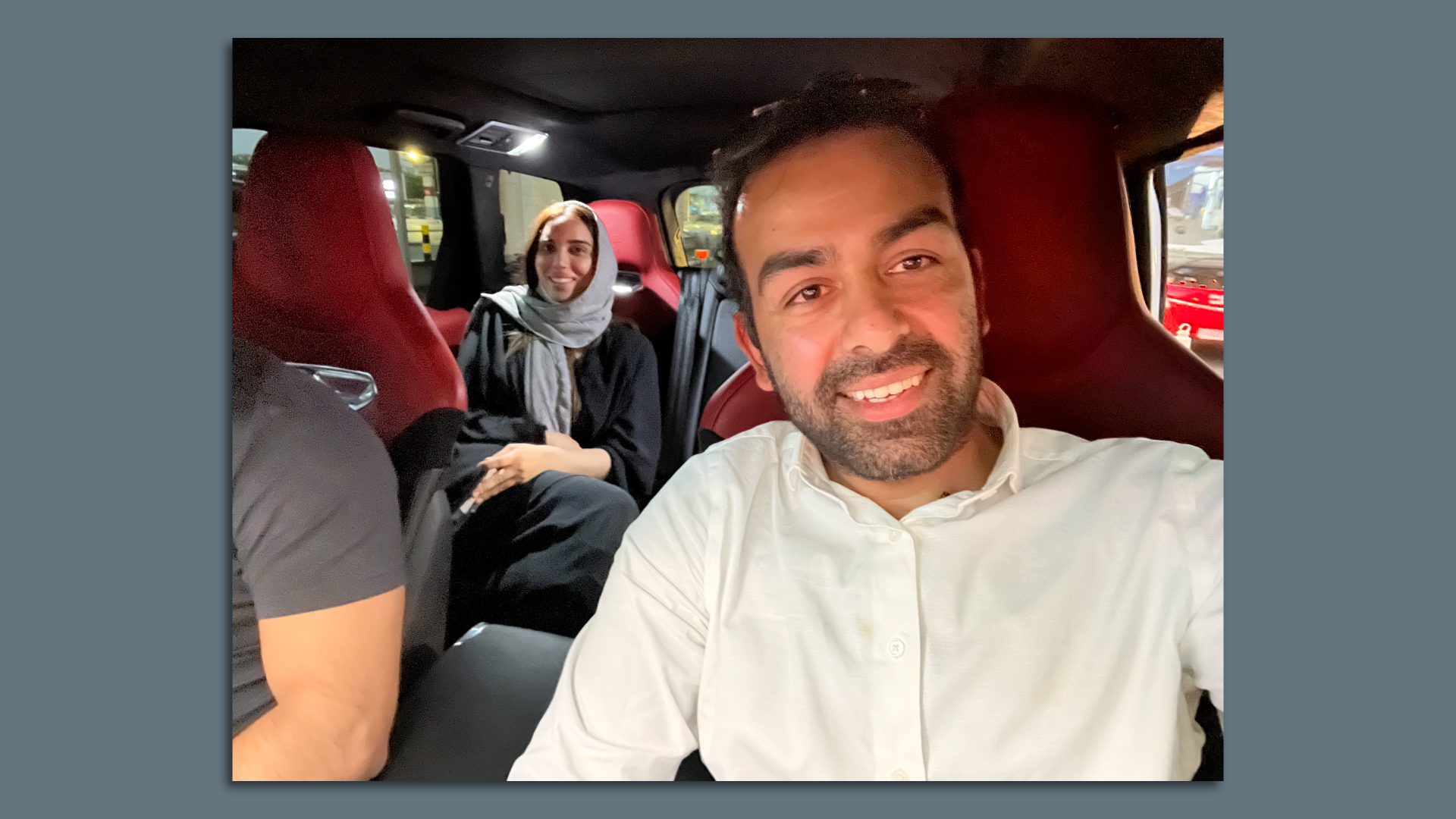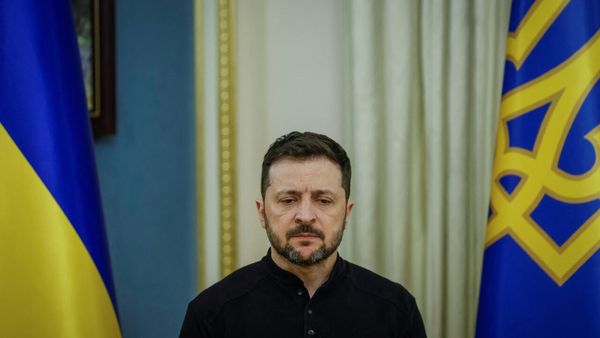An Afghan American freed in April after being detained by the Taliban used his connections to help secure the release this week of another American — a woman held in northern Afghanistan, Axios has learned.
Why it matters: The State Department, which has yet to recognize the Taliban government, did not engage in negotiations to free 33-year-old Mahnaz Safi.
- Her U.S. family reached out to Safi Rauf, co-founder of Human First Coalition, after reading about his own months-long detention in Taliban custody and humanitarian work.
- Rauf, a former Afghan refugee and U.S. Navy reservist who helped evacuate thousands of at-risk Afghans during the fall of Kabul, arrived at John F. Kennedy International Airport in New York with Safi on Thursday morning after arranging her safe passage to Dubai.
Between the lines: Nine months after the last American troops withdrew from Afghanistan, the government of Qatar acts as the formal diplomatic intermediary between Washington and the Taliban.
- Nonprofits like Human First have played an outsized role in organizing evacuations and distributing aid thanks to a level of institutional knowledge and legal flexibility most governments don't possess.
- But negotiating the release of foreign detainees represents a different level of engagement.
Behind the scenes: Safi, who was born in New Jersey to Afghan parents and grew up in Virginia, decided to travel to a village in Jowzjan Province, Afghanistan, in May.
- She said her goal was to distribute humanitarian aid in famine-stricken Afghanistan after raising about $18,000 on GoFundMe — and also to explore her own roots in a homeland she had only known from afar.
- A self-described "risk-taker," Safi told Axios she ignored warnings from family and friends about how dangerous Afghanistan was for women — dismissing it as media alarmism.
Three weeks into her stay, Safi was brought in for questioning by the local police, who were suspicious of why an American with thousands of dollars was living with people who were not her family.
- A local imam had also accused her of attempting to convert villagers from Islam, which Safi — who is Muslim — denies.
- The police detained Safi after discovering she had no visa or entry stamps in her passport. She says she and the family she was staying with were grilled for several days about who she was and why she was in Afghanistan.

Rauf, who resumed his work at Human First Coalition after being freed from Taliban custody in April, worked through his contacts and pieced together why and where Safi was being detained.
- His sources told him she had been transferred to the General Directorate of Intelligence — the same Taliban security agency that had detained Rauf for 105 days on suspicion of espionage.
- Rauf and his network reached out to Taliban contacts and asked for their help freeing Safi in exchange for direct humanitarian aid for their villages.
- The negotiations involved sources ranging from local villagers on the ground, the governor of Jowzjan province and high-level Taliban officials in the Ministry of Interior.
What they're saying: A State Department spokesperson told Axios, "We are aware of reports of the release of a U.S. citizen who had previously been detained in Afghanistan. The State Department continues to advise U.S. citizens not to travel to Afghanistan."
What's next: Hostage-taking is one of the top issues that has prevented the U.S. from recognizing the Taliban as Afghanistan's legitimate government — as well as attacks on women's rights and providing haven to terrorist organizations.
- President Biden said earlier this year that the Taliban must release U.S. Navy veteran Mark Frerichs, kidnapped in Afghanistan two years ago, "before it can expect any consideration of its aspirations for legitimacy."
- Rauf plans to continue his work providing humanitarian aid and helping evacuate at-risk civilians in Afghanistan, but he has urged the U.S. government to engage in diplomacy with the Taliban — like the two parties did to secure his freedom — for the sake of the Afghan people.
Go deeper: Rauf recounts his own months-long nightmare in Taliban custody







